[orc]The Supreme Court in its recent judgment noted that there have been instances of abuse of the Prevention of Atrocities act. In this context, we look at the conviction rates in the case of crimes against SCs & STs.
The Supreme Court has recently noted that there have been instances of abuse of the Scheduled Castes and the Scheduled Tribes (Prevention of Atrocities) Act, 1989 by vested interests. In its judgment, the court directed that arrest of a public servant in cases of crimes reported under this act can only be after approval of the appointing authority and in case of a non-public servant, the arrest can be made only after the approval by the S.S.P. which may be granted in appropriate cases if it is considered necessary. The court also made it clear that such grant of arrest must be accompanied by recorded reasons.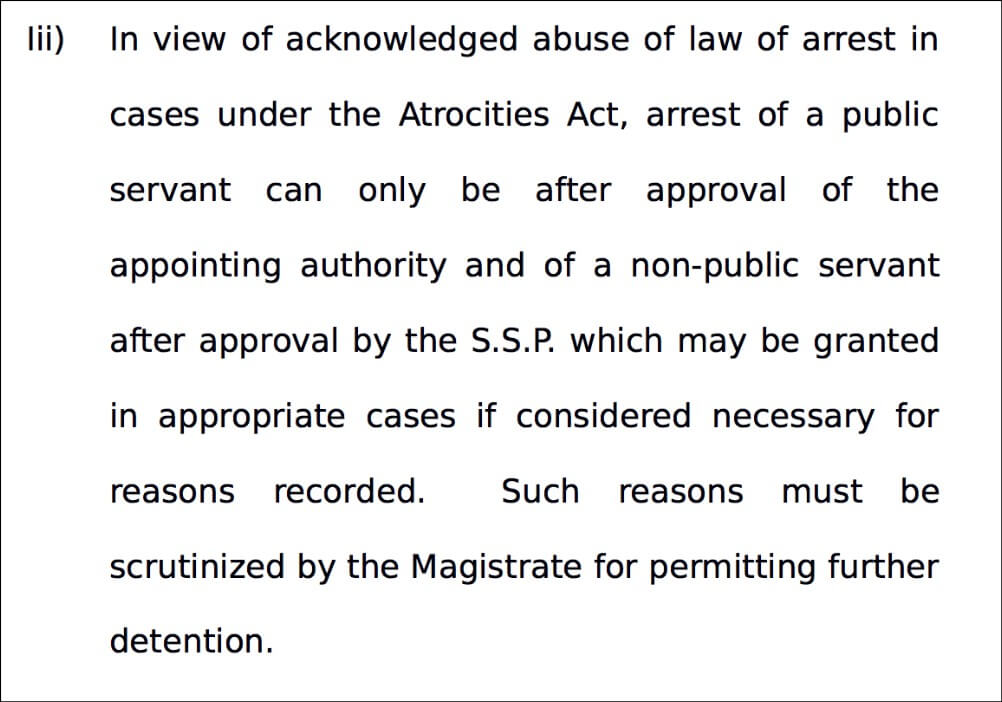
Crimes against SCs/STs
The Scheduled Castes and the Scheduled Tribes (Prevention of Atrocities) Act, 1989 was enacted to prevent atrocities/crimes against the members of the Scheduled Castes and the Scheduled Tribes. The act was further amended in 2015 to modify certain categories of offences and add new categories of actions to be treated as offences.
The National Crime Records Bureau in its annual Crime in India report, has a dedicated section on crimes against the SCs/STs. Crimes are recorded both as per sections of the IPC read in conjunction with the atrocities act and offences listed in the atrocities act.
Pendency of cases increasing each year
As per data released by the NCRB, the number of cases of crime against SCs pending for trial increased from 85264 at the end of the year 2006 to 129831 at the end of year 2016, an increase of over 50% in 10 years. The number of cases of crime against SCs pending trial, crossed one lakh in 2014.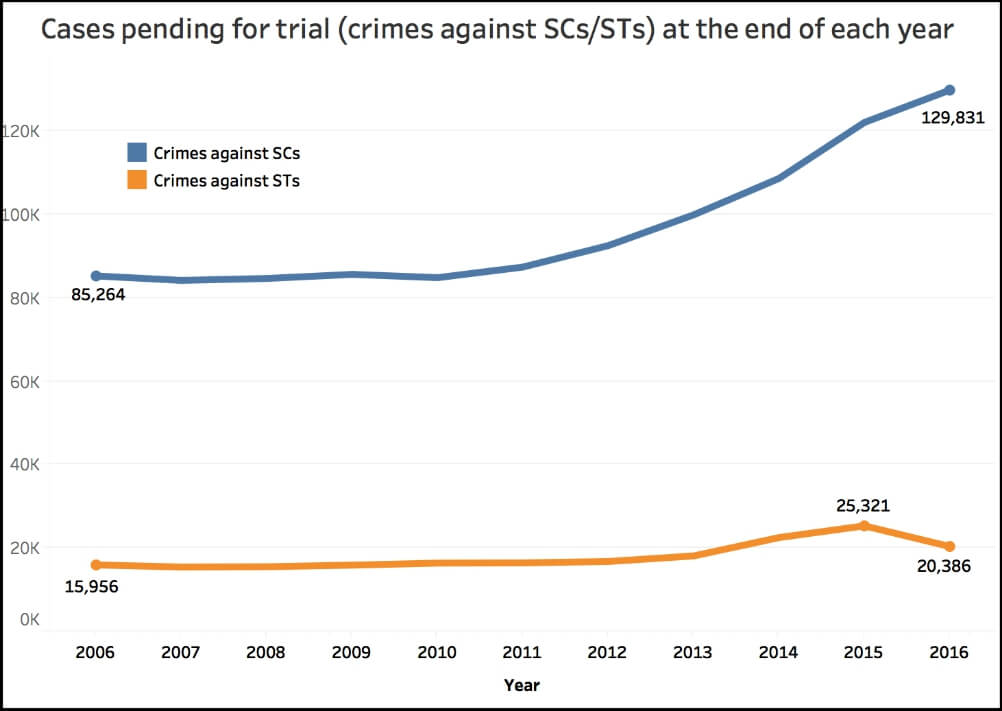 In the case of crimes against STs, the number of cases pending trial increased from 15956 at the end of 2006 to 20386 at the end of 2016, an increase of 28%. The number of cases pending for trial decreased substantially from 2015 to 2016.
In the case of crimes against STs, the number of cases pending trial increased from 15956 at the end of 2006 to 20386 at the end of 2016, an increase of 28%. The number of cases pending for trial decreased substantially from 2015 to 2016.
Crime against SCs – Substantial decrease in the disposal rate by courts
The number of cases disposed by courts in case of crimes against SCs has decreased substantially in the last four years. An average of 21000 cases were disposed per year by courts from the year 2006 till 2011. Since 2012, the average is down to 17000 cases per year. In 2016, a mere 14615 cases were disposed, leading to enormous increase in the number of pending cases for trial.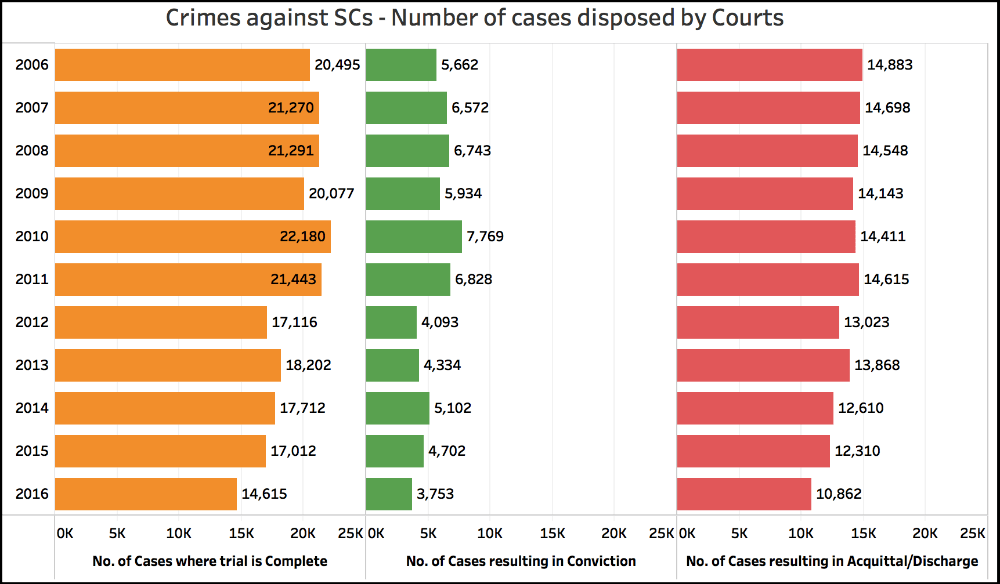 In the case of crimes against STs, about 3900 cases were disposed on average per year since 2006. There has not been a substantial decrease in the number of cases disposed except for the 2016 when only 2895 cases were disposed by courts.
In the case of crimes against STs, about 3900 cases were disposed on average per year since 2006. There has not been a substantial decrease in the number of cases disposed except for the 2016 when only 2895 cases were disposed by courts.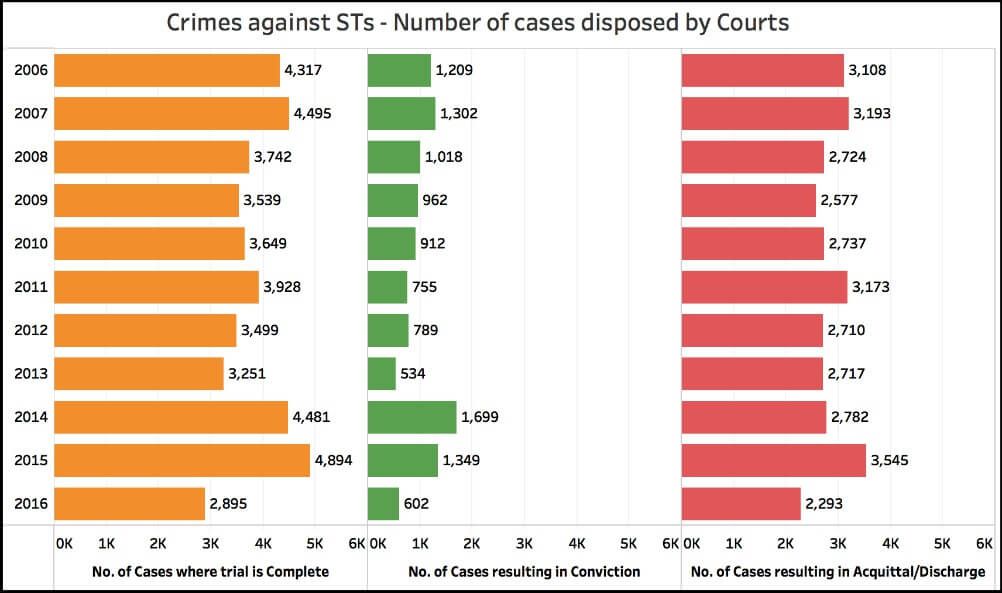
Is Conviction rate comparable to other crimes?
The average conviction rate in the case of crimes against SCs is around 29% since 2006. In the case of crimes against STs, it is around 26%. Though these conviction rates are less than the overall conviction rate of all IPC crimes, they are more than the conviction rate in many other IPC crimes. For instance, the conviction rates are higher in the case of crimes against SCs/STs compared to the conviction rate in 498-A cases. In fact, in the case of crimes against SCs/STs, the conviction rate on average is more than the conviction rate in 11 other IPC crimes since 2006.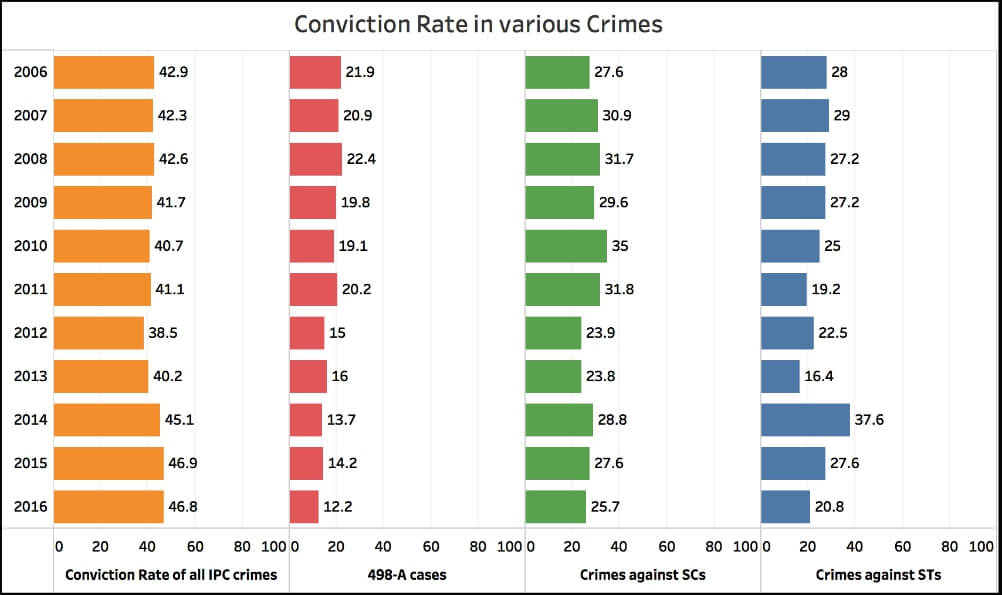
While the Supreme Court has noted certain cases of misuse of the PoA act, speedy disposal of cases might result in better conviction rates and ensuring timely justice to both parties.
Featured Image: Abuse of Prevention of Atrocities act


